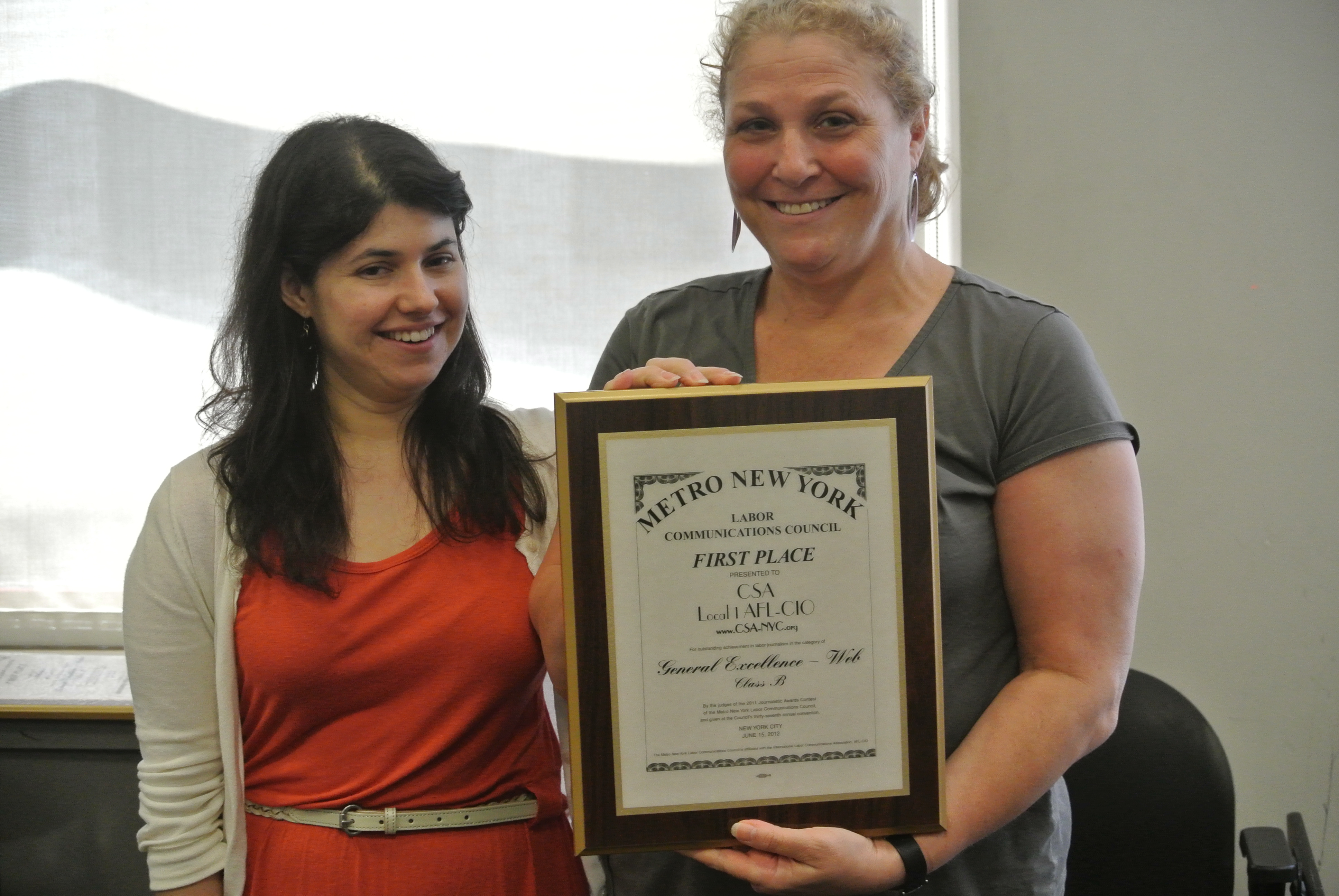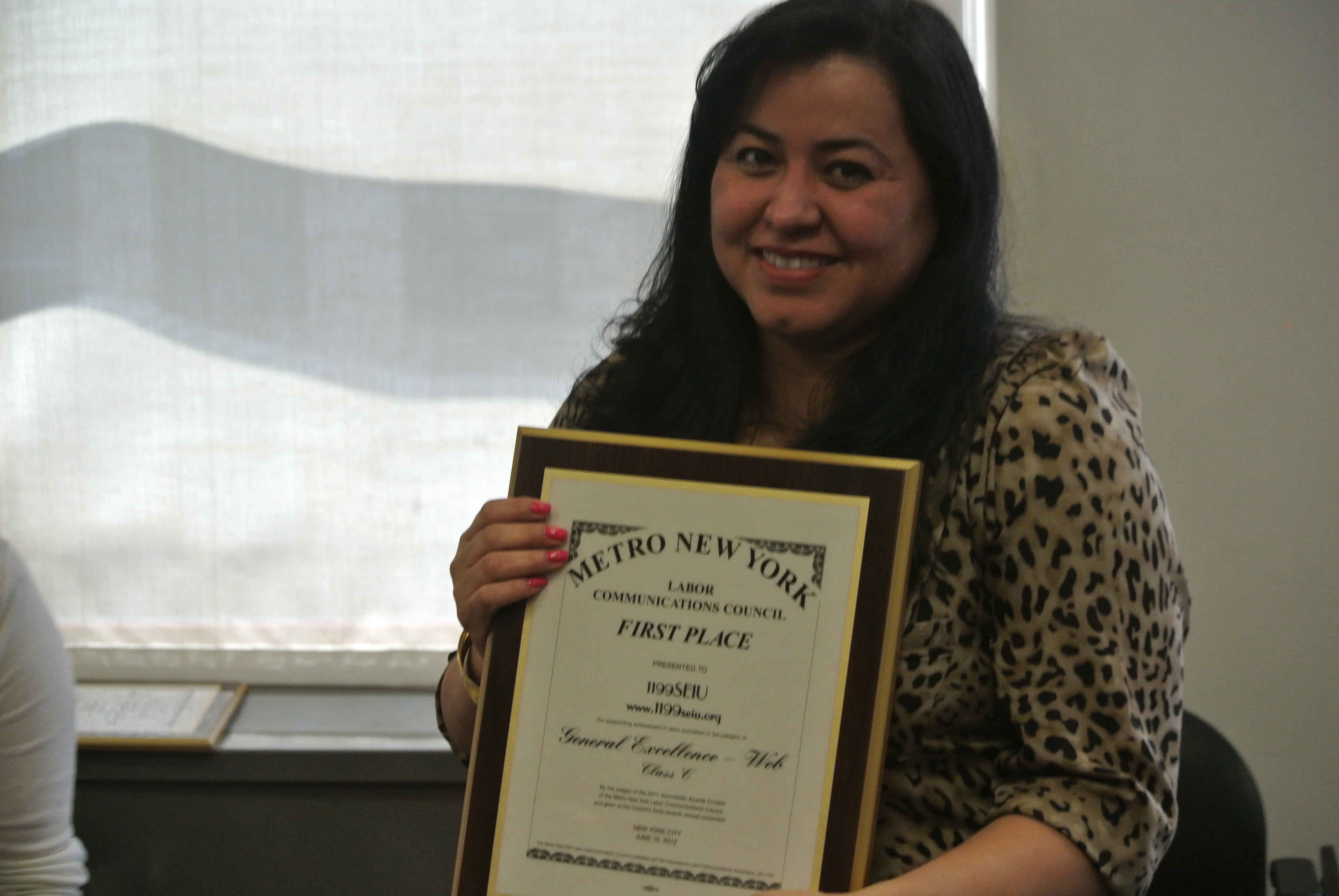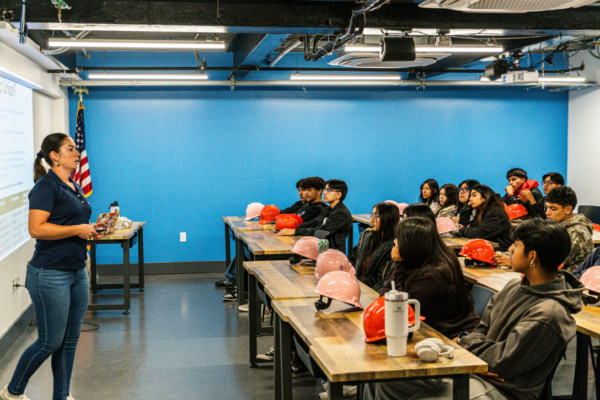June 19, 2012
By Marc Bussanich, LaborPress City Reporter
At the Murphy Institute on Friday, June 15, the Metro New York Labor Communications Council held its annual contest that recognizes excellence among labor journalists, photographers, graphic artists, editors and publications. Before the winners were awarded, a four-member panel discussed the implications, limitations and future of Occupy Wall Street.
The panel members included Juan Gonzalez of the NY Daily News, Joseph Dickens of the Working Families Party, Mary Clinton of UAW Local 2110 and liaison to OWS and Melissa Ryan of the New Organizing Institute.
The moderator first asked, “Did OWS change the public discussion from austerity to economic inequality?”
Gonzalez said that no doubt it did because of its occupation of public spaces.
“People talk about income equality all the time, but people don’t necessarily listen. But the occupying of public spaces made the difference.”
Dickens of WFP believes that OWS indeed raised peoples’ consciousness about economic inequality, but the results in the recent Wisconsin electoral recall shows that “we haven’t won just yet.”
Gonzalez noted that while OWS clearly exposed the chasm between the super-rich and working people, “The problem continues to be that the 99 percent has a lot of conflicts within it.” He believes that OWS has to articulate a vision on how to resolve those conflicts within the 99 percent in order to develop a strategy for long-standing social change.
For example, Gonzalez also co-anchors the independent news service, Democracy Now. He mentioned that just before the awards ceremony at Murphy on Friday he had the opportunity to interview the long-time consumer advocate and three-time presidential candidate, Ralph Nader.
Nader said on Democracy Now’s program,www.democracynow.org/2012/6/15/ralph_nader_30_million_workers_would, that one possible reason why the slashing of public sector pensions resonates with private sector unions is because while the private sector was getting slammed from trade deals like the North American Free Trade Agreement, the public sector unions were mostly silent.
“Now when the public sector is under attack, it’s going to be difficult to repair some of the divisions still lingering between public and private sector unions,” said Gonzalez.
Gonzales also said that OWS is the rear guard of a world-wide movement, as uprisings first occurred in Spain, Greece and Egypt, just as they did in 1968 when massive political demonstrations rocked France and ultimately inspired the anti-war movement in the U.S.
Gonzalez implored the labor communicators at Murphy to write stories for their publications showing how international finance is wreaking havoc not just here at home, but around the world so as to raise consciousness of the struggles of working people abroad.
The Winners Are…..
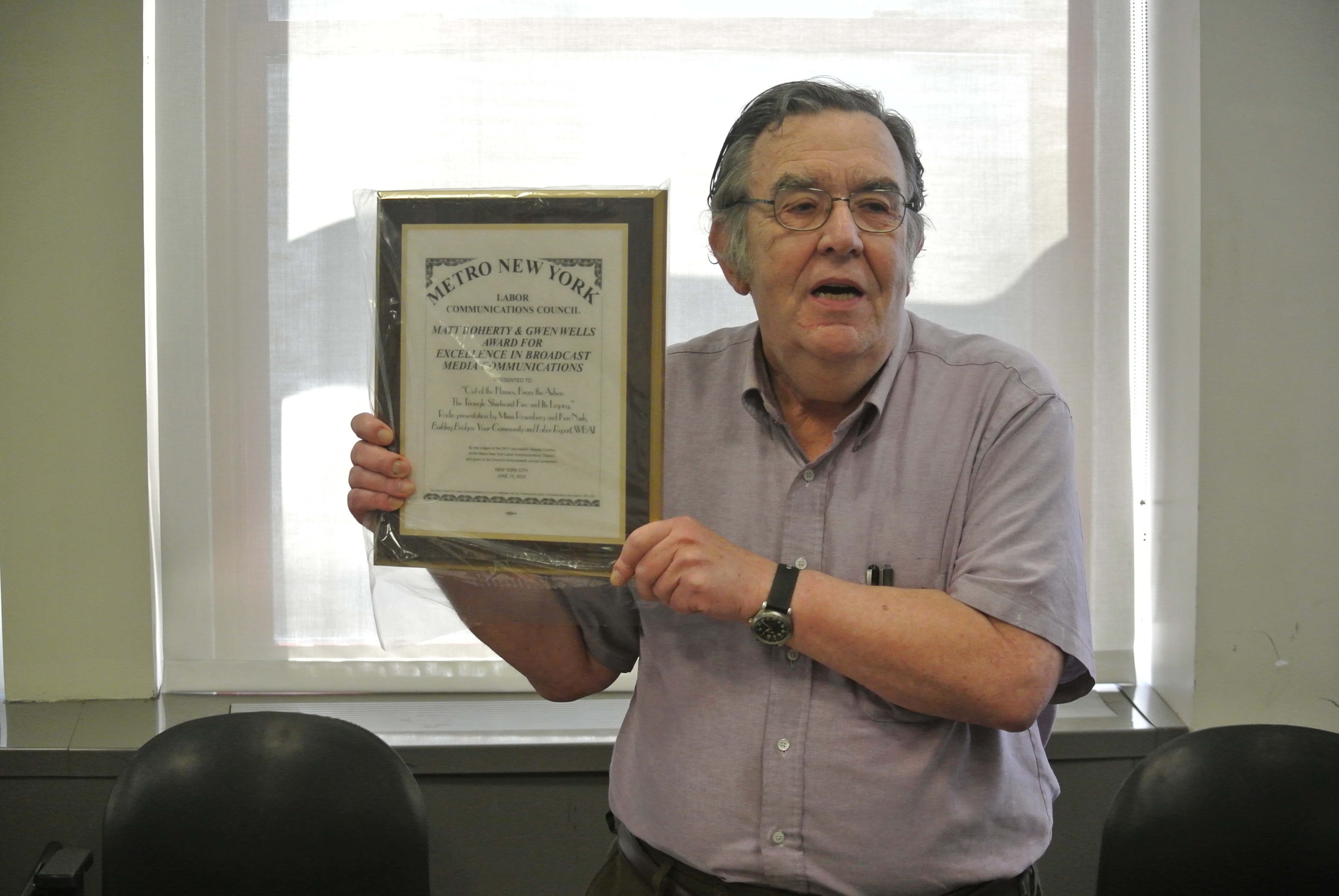 The Matt Doherty/Gwen Wells—Excellence in Broadcast Media award was presented to Ken Nash, who hosts the radio show on WBAI with Mimi Rosenberg, Building Bridges: Your Community and Labor Report, for their segment on “Out of the Flames, From the Ashes: The Triangle Shirtwaist Fire and its Legacy.”
The Matt Doherty/Gwen Wells—Excellence in Broadcast Media award was presented to Ken Nash, who hosts the radio show on WBAI with Mimi Rosenberg, Building Bridges: Your Community and Labor Report, for their segment on “Out of the Flames, From the Ashes: The Triangle Shirtwaist Fire and its Legacy.”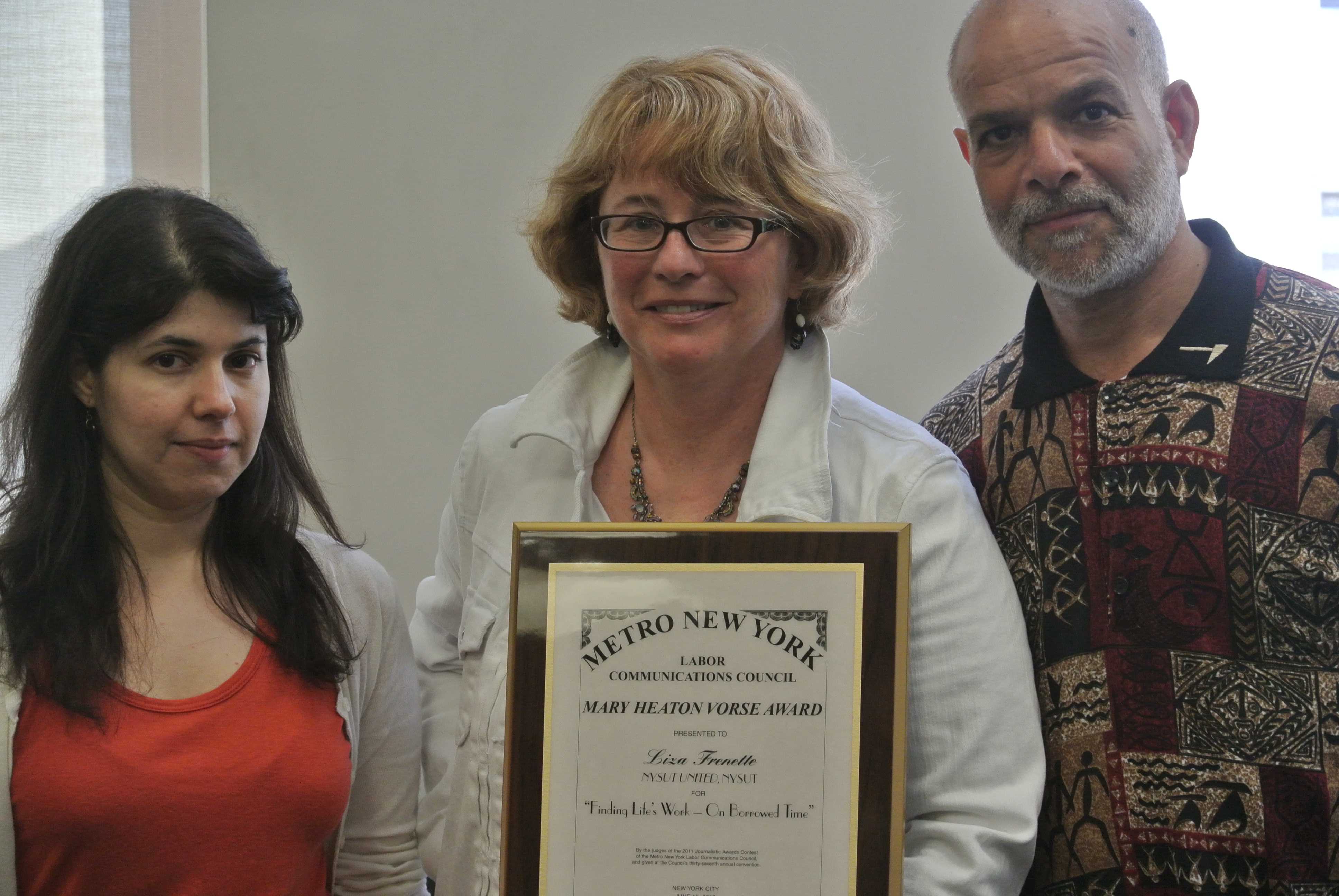
The Mary Heaton Vorse Award was presented to Liza Frenette for her story in NYSUT United, “Finding Life’s Work—On Borrowed Time.”
John Tarleton of PSC/CUNY AFT won an award for Best Reporting for a story, “Inside the Wisconsin Uprising:
Teaching Assistants Help Spark a New Movement in Labor,” he wrote for his union’s e-newsletter, Clarion.
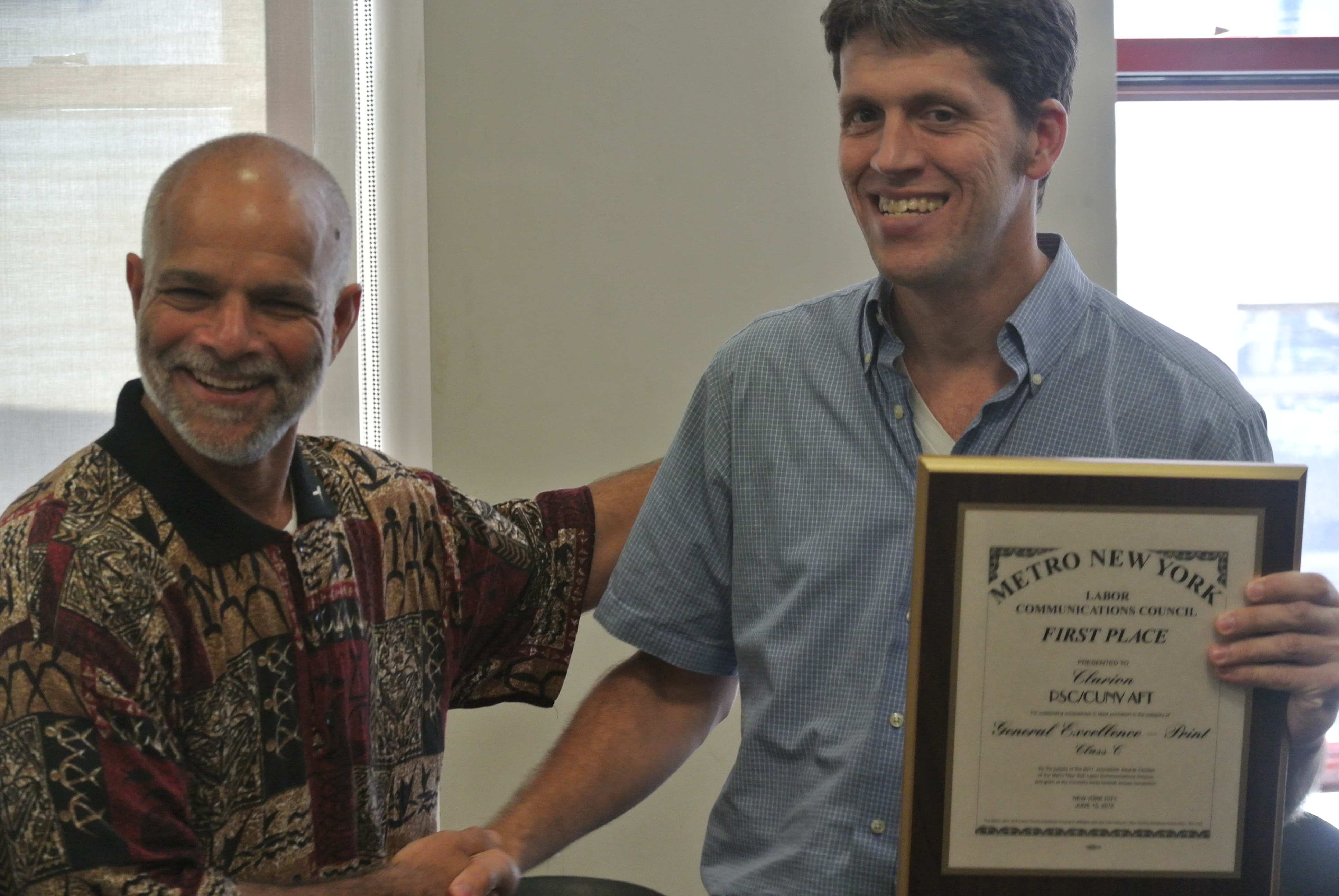 Two awards were presented for General Excellence-Web to one member of CSA Local 1 and 1199SEIU.
Two awards were presented for General Excellence-Web to one member of CSA Local 1 and 1199SEIU.
